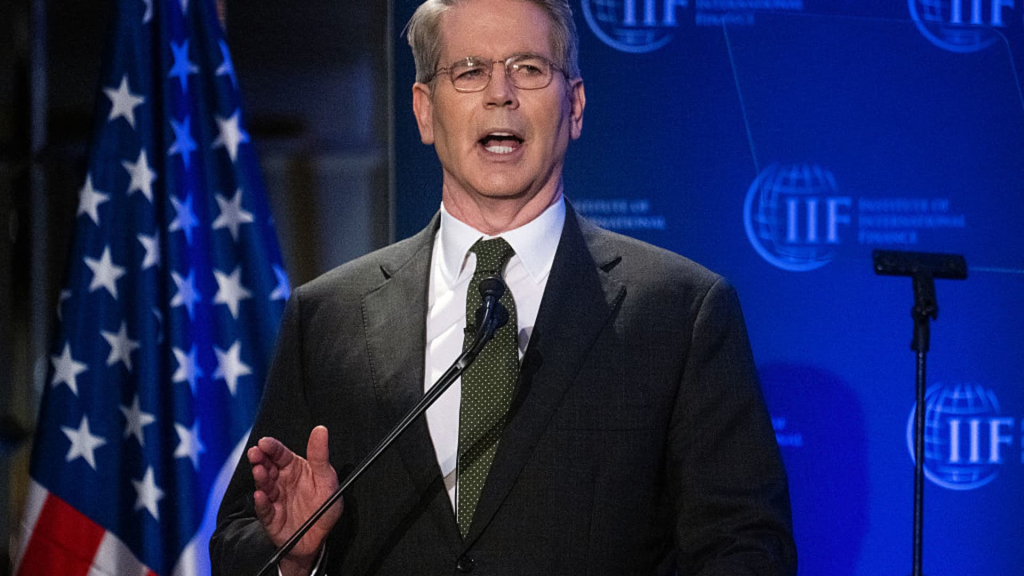On Wednesday, Treasury Secretary Scott Bessent stated that there exists a considerable opportunity for significant progress regarding trade relations between the United States and China.
During his remarks at the Institute of International Trade and Finance in Washington, D.C., Bessent expressed, “If they want to rebalance, let’s do it together.”
Bessent characterized the current situation as “an incredible opportunity,” referencing Bridgewater Associates founder Ray Dalio, suggesting that any potential changes could be seen as a “beautiful rebalancing.”
As part of his trade strategy, President Trump has implemented extraordinarily high tariffs averaging 145% on Chinese imports. Just prior to Bessent’s address, a report from The Wall Street Journal indicated that the administration was contemplating a reduction of these tariffs to between 50% and 65%, figures that remain significantly elevated.
In his speech, Bessent presented what he termed a “blueprint to restore equilibrium” to the global financial landscape, with a focus on the roles of the World Bank and the International Monetary Fund (IMF).
“The IMF and World Bank have enduring value,” noted Bessent. “However, mission drift has diverted these institutions from their core purpose. It is imperative that we implement essential reforms to ensure that the Bretton Woods institutions are serving their stakeholders and not the other way around.”
Bessent highlighted the adverse impact of foreign policy decisions, stating that they have eroded America’s manufacturing base and jeopardized crucial supply chains, ultimately endangering national security and economic stability.
“President Trump has taken decisive action to address these imbalances and their detrimental effects on American workers,” Bessent asserted. “The current state of significant and persistent trade imbalances is untenable, not just for the United States, but for other global economies as well.”
On the topic of funding, Bessent criticized the World Bank’s continued financial support for nations with developed economies, specifically calling for an end to loans provided to China.
“The World Bank continues to extend loans annually to countries that have qualified to graduate from its borrowing program,” he remarked. “This ongoing support is unjustifiable and diverts resources from areas of higher priority, thereby hampering the development of private market initiatives.”
Bessent further emphasized, “Going forward, the Bank must establish firm timelines for the graduation of countries that have long fulfilled the requisite criteria. It is ludicrous to treat China, the world’s second-largest economy, as a ‘developing country.’
“China’s rapid ascent has, regrettably, been to the detriment of many Western markets,” he acknowledged. “If China wishes to take on a role in the global economy that reflects its actual significance, it must transition out of its current status, and we welcome that.”
— Finance Newso’s Erin Doherty contributed to this story.
This is breaking news. Please refresh for updates.


























